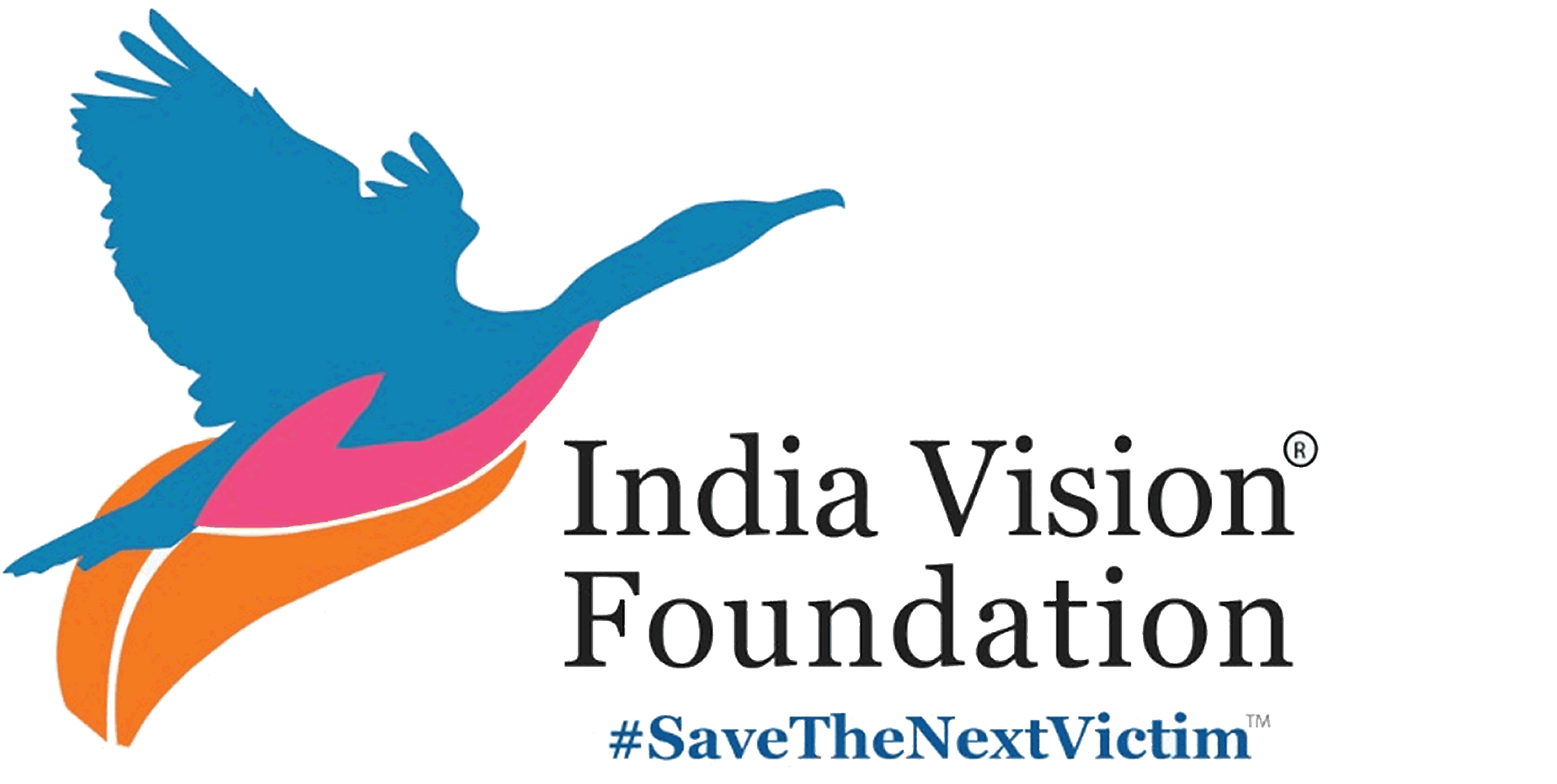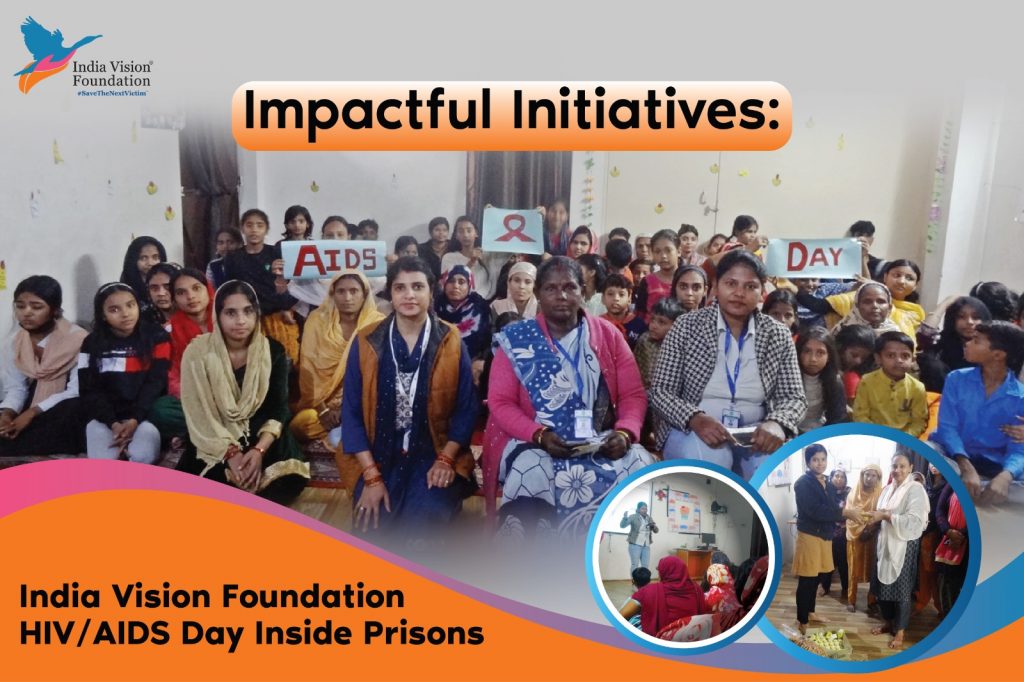Breaking Barriers
World AIDS Day, observed on December 1st every year, serves as a powerful reminder of the global fight against HIV/AIDS. Amidst the numerous organizations dedicated to combating this pandemic, one stands out for its unique and impactful approach – the India Vision Foundation, spearheaded by the indomitable Kiran Bedi.
Here, we delve into the India Vision foundation’s pioneering initiatives to address HIV/AIDS within the challenging confines of prison walls.
Creating Awareness Behind Bars and Support Services
One of the primary challenges in combating HIV/AIDS within the prison system is the lack of awareness and education. India Vision Foundation has been instrumental in implementing awareness campaigns, workshops, and educational programs inside prisons across the country. Inmates, often marginalized and with limited access to information, are provided with crucial knowledge about the transmission, prevention, and treatment of HIV/AIDS.
Acknowledging the emotional and psychological toll of an HIV/AIDS diagnosis, the foundation has established counseling and support services within prisons. This not only helps inmates cope with the stigma associated with the virus but also fosters an environment where individuals feel comfortable seeking medical assistance.
By addressing the mental health aspect of HIV/AIDS Day Inside Prisons, India Vision Foundation contributes to holistic care for inmates.
Access to Testing and Treatment:
Ensuring access to HIV testing and treatment is paramount in the fight against the virus. India Vision Foundation collaborates with healthcare professionals and authorities to facilitate regular testing and provide necessary medical interventions within prison facilities. Timely detection and treatment not only improve the health outcomes for affected individuals but also contribute to the prevention of further transmission.
Skill Development and Employment Opportunities:
Understanding the pivotal role employment plays in successful rehabilitation, the India Vision Foundation integrates skill development programs into their HIV/AIDS initiatives. Inmates diagnosed with HIV/AIDS are provided with opportunities to acquire new skills, enhancing their employability upon release. This approach not only tackles the socio-economic challenges faced by those affected but also reduces the likelihood of relapse into high-risk behaviors HIV/AIDS Day Inside Prisons.
Community Reintegration Programs:
The foundation recognizes that successful rehabilitation extends beyond prison walls. India Vision Foundation actively engages in community reintegration programs for individuals living with HIV/AIDS who are transitioning back into society. By partnering with local communities, employers, and support groups, the foundation aims to break the cycle of stigma and discrimination, fostering an environment of acceptance and understanding.
Advocacy for Policy Reforms:
India Vision Foundation goes beyond direct intervention by advocating for policy reforms in the context of HIV/AIDS within the prison system. By collaborating with governmental bodies, policymakers, and other stakeholders, the foundation works towards creating a more supportive legal and policy framework that prioritizes the healthcare and rights of inmates living with HIV/AIDS.
Building Partnerships for Sustainable Impact:
Sustainable impact requires collaboration, and India Vision Foundation understands this well. The organization actively seeks partnerships with governmental agencies, non-profits, and private entities to expand the reach and effectiveness of its initiatives. Through strategic alliances, the foundation maximizes its impact, ensuring that resources are utilized efficiently and interventions are scalable.
Educational Initiatives:
Recognizing that education is a powerful tool for empowerment, India Vision Foundation implements educational initiatives tailored to the unique needs of inmates. From literacy programs to vocational training, these initiatives not only equip individuals with essential skills but also foster a sense of purpose and dignity, crucial elements in the journey towards rehabilitation.
Innovative Technology Solutions:
Harnessing the power of technology, the foundation incorporates innovative solutions to reach a wider audience within prison facilities. Mobile apps, virtual counseling sessions, and e-learning modules contribute to the delivery of critical information and support services, transcending the physical barriers of the prison environment.
Addressing Vulnerable Populations:
India Vision Foundation pays special attention to vulnerable populations within prisons, such as women and juvenile inmates. Tailored programs address the unique challenges faced by these groups, ensuring that gender-sensitive and age-appropriate interventions are in place.
Global Collaborations:
In an interconnected world, India Vision Foundation actively collaborates with international organizations and experts to stay abreast of global best practices in HIV/AIDS prevention and treatment. These collaborations not only bring valuable insights but also contribute to the exchange of knowledge and resources.
How You Can Contribute:
Impressed by the India Vision Foundation’s commitment to combating HIV/AIDS Day Inside Prisons?
You can make a difference too.
Click here to learn more about their ongoing projects and find out how you can contribute to their cause.
Your support can help break down barriers and create a future where no one is left behind in the fight against HIV/AIDS.
Final say:
On this World AIDS Day, let’s celebrate the resilience and determination of organizations like India Vision Foundation. Their innovative and comprehensive approach to addressing HIV/AIDS within the prison system not only transforms individual lives but also contributes to the larger goal of creating a society free from the stigma and impact of this global pandemic.
Remember, the fight against HIV/AIDS is a collective endeavor, and every contribution counts.
Donate Now to support India Vision Foundation’s impactful initiatives.
Together, we can break the chains of stigma and build a healthier, more inclusive future for all.


